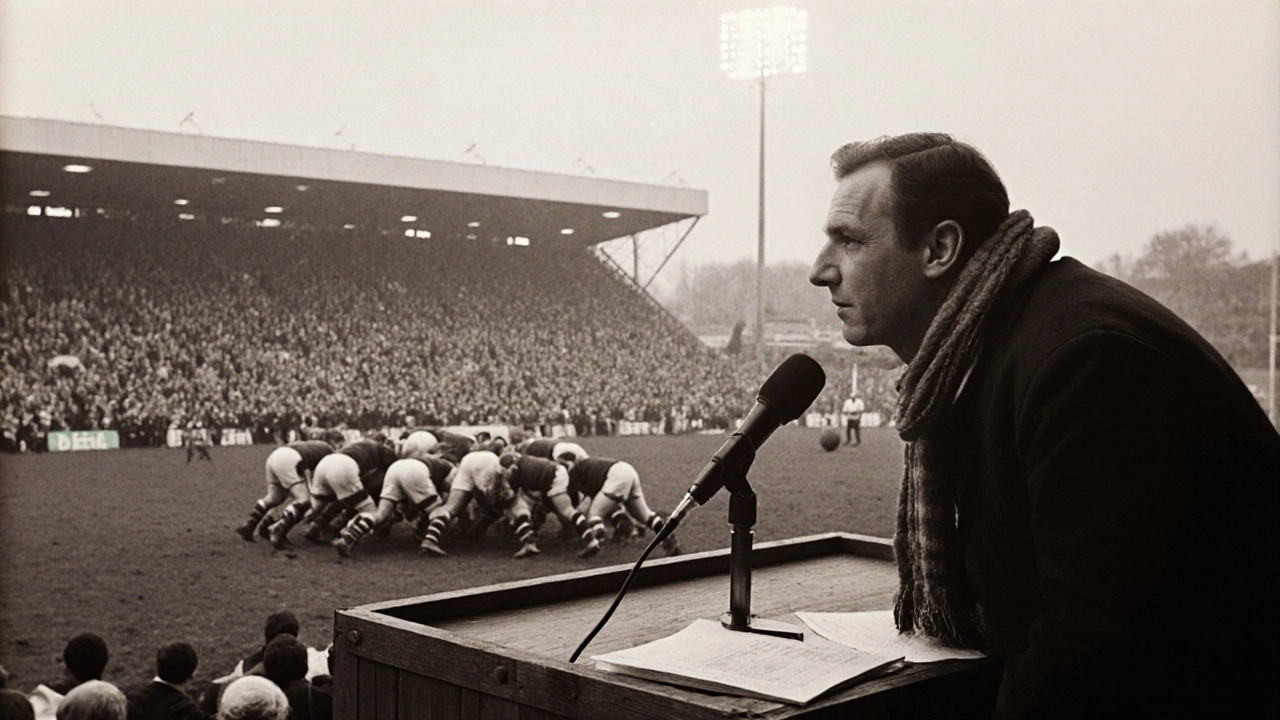Rugby Slang – What It Is and How to Use It
If you’ve ever watched a match and heard fans shouting words like “ruck” or “try‑line” without knowing what they mean, you’re not alone. Rugby slang is the shortcut language players, coaches, and supporters use to describe actions, positions, and moments on the field. It keeps the chat fast, fun, and full of personality.
Unlike formal rules, slang evolves from the locker room, the stands, and social media. Some phrases are decades old, while others pop up when a new play style catches on. Knowing the most common terms lets you join the conversation, understand commentary better, and even sound like a seasoned fan.
Top Rugby Slang Terms
Ruck – When a player is tackled and both teams compete for the ball on the ground. You’ll hear it in “We need to dominate the ruck here.”
Maul – Similar to a ruck, but the ball carrier stays on his feet and teammates bind around him. It’s the “power‑push” moment.
Try – The main way to score points, worth five. Fans shout “That’s a try!” when a player grounds the ball in the in‑goal area.
Sin bin – The 10‑minute penalty box for foul play. When a player is sent there, you’ll hear “He’s in the sin bin for a high tackle.”
Kick‑off – The start of each half or a restart after a try. It’s the “boom” that sends the ball flying down the field.
Turnover – When the defending team gains possession after a mistake. Announcers love saying “That’s a big turnover!”
How to Use Rugby Slang in Conversation
Start by dropping one term when you talk about a match. Instead of saying “the players fought for the ball on the ground,” say “they battled in the ruck.” It sounds natural and shows you’re in the loop.
Mix slang with plain language so your friends who aren’t as into rugby still get the gist. Example: “The winger broke the line, got a clean try, and the crowd went wild.” You’ve used “try” and “broke the line” without confusing anyone.
Watch live games or highlights with the commentary on. When the pundit says “That’s a great maul,” pause, repeat the word, and think about why it fits. Repetition builds confidence.
Remember that some slang can be regional. In New Zealand you’ll hear “scrum‑half” shortened to “half‑back,” while in the UK they often just say “scrum‑half.” Adjust your vocabulary based on who you’re talking to.
Finally, have a bit of fun. Throw in a cheeky “That was a proper grubber!” after a low, bouncing kick. It adds color and shows you enjoy the game’s culture.
With these basics, you’re ready to join the chatter, understand match reports, and maybe even surprise a teammate with the right phrase at the right time. Rugby slang isn’t just words—it’s part of the sport’s spirit. So next time you’re at the stadium or watching from the couch, drop a few of these terms and feel the connection grow.
What Does "Jackler" Mean in Rugby? Origin, Role & Modern Usage

Discover the origin of the rugby nickname "jackler", its role in the game, why it disappeared, and what modern players are called today.
Slang Words for Rugby Player: What You Need to Know

Ever wondered what slang word people use for rugby players? This article breaks down the nicknames, where they came from, and how they're used in real conversations. Get ready to spot these terms at matches, on social media, and even from the players themselves. You'll also pick up tips on when to use (or avoid) these labels. By the end, you'll sound like you know your stuff, on and off the field.
Understanding Rugby Slang: A Guide to Enthusiast Lingo and Fixtures

Rugby, a sport rich in tradition and camaraderie, brings with it a vibrant lexicon that captures the essence of its culture. This article delves into the colorful world of rugby slang, offering insights into common terms used by players and fans alike. Understanding this unique language can enhance the experience of attending rugby fixtures, connecting newcomers with seasoned enthusiasts. Whether you're on the stands or on the field, knowing these colloquial expressions adds a layer of enjoyment to the game.
